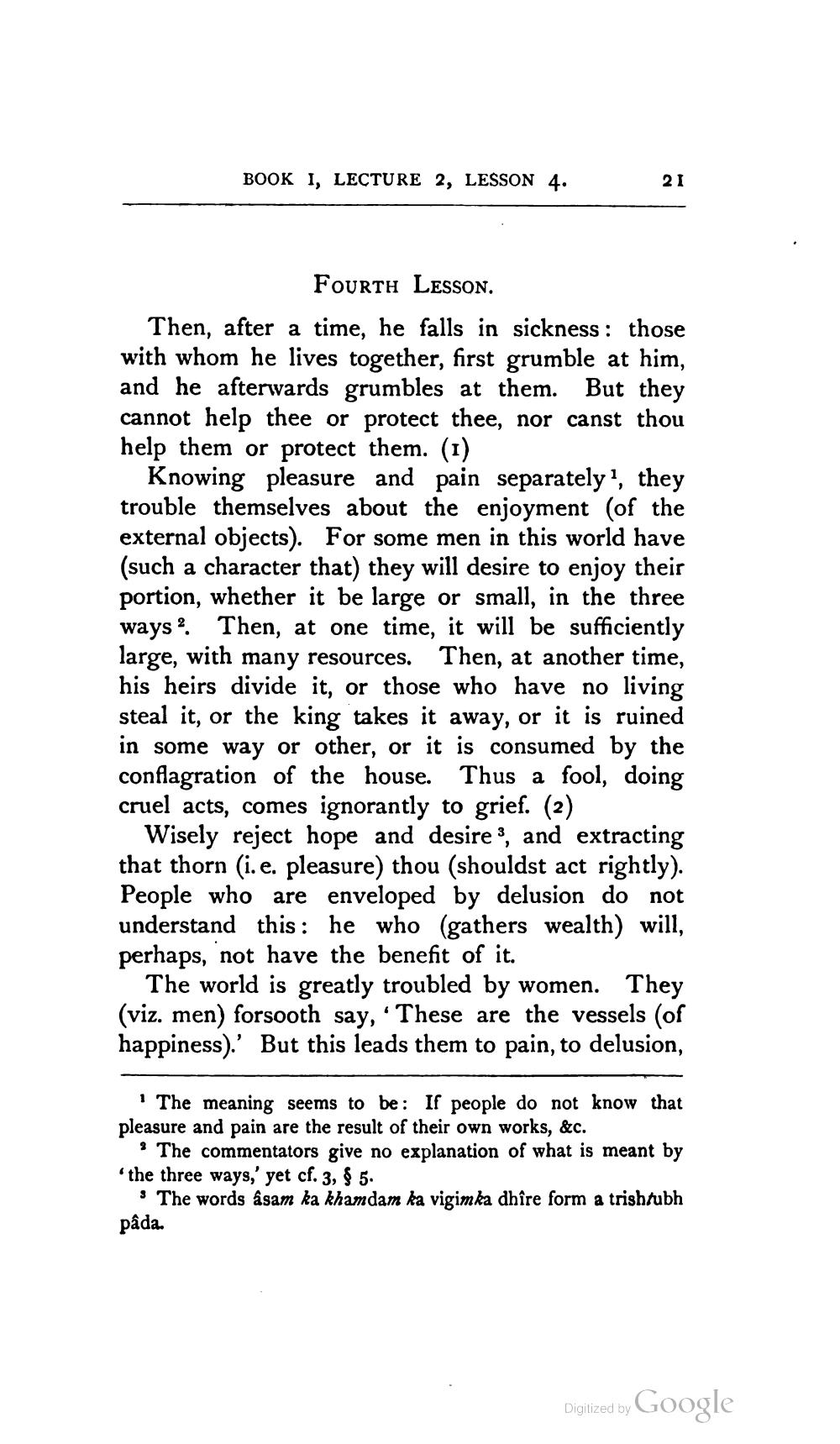________________
BOOK I, LECTURE 2, LESSON 4.
21
Fourth LESSON. Then, after a time, he falls in sickness: those with whom he lives together, first grumble at him, and he afterwards grumbles at them. But they cannot help thee or protect thee, nor canst thou help them or protect them. (1)
Knowing pleasure and pain separately, they trouble themselves about the enjoyment (of the external objects). For some men in this world have (such a character that) they will desire to enjoy their portion, whether it be large or small, in the three ways? Then, at one time, it will be sufficiently large, with many resources. Then, at another time, his heirs divide it, or those who have no living steal it, or the king takes it away, or it is ruined in some way or other, or it is consumed by the conflagration of the house. Thus a fool, doing cruel acts, comes ignorantly to grief. (2)
Wisely reject hope and desire 3, and extracting that thorn (i.e. pleasure) thou (shouldst act rightly). People who are enveloped by delusion do not understand this: he who (gathers wealth) will, perhaps, not have the benefit of it.
The world is greatly troubled by women. They (viz. men) forsooth say, 'These are the vessels (of happiness).' But this leads them to pain, to delusion,
! The meaning seems to be: If people do not know that pleasure and pain are the result of their own works, &c.
? The commentators give no explanation of what is meant by the three ways,' yet cf. 3, $ 5.
The words asam ka khamdam ka vigim ka dhire form a trishtubh pâda.
Digitized by Google




